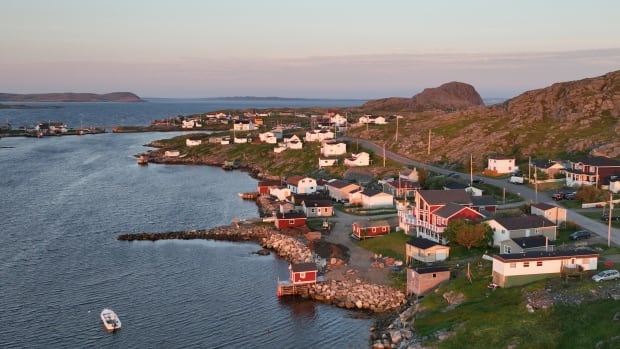When a Massachusetts doctor with ties to Newfoundland learned that Fogo Island had been without a permanent family doctor since June, he knew he wanted to help.
But Dr Paul Hart’s offer of three months of his medical services – free – ran into licensing issues with the College of Physicians and Surgeons. On Friday, Hart received a letter informing him that his request for recording had been rejected.
Hart, originally from Toronto, came to Newfoundland and Labrador for his university education and was among the first class of graduates from Memorial University’s medical school in 1973. He says offering his services is his way of giving back to the province.
“I want to thank the province of Newfoundland for providing me with this phenomenal education and a wonderful medical career,” Hart told CBC News in a recent interview.
Hart contacted Fogo Island Health Center and Central Health to offer to work as a family doctor for up to three months. He said his services would be free and he would cover his own travel and living expenses.
“I will not ask for any compensation,” Hart said. “And indeed, if you give me money, I will turn around and write a check to the town of Fogo and the island to use as they need.”
Hart says the response to his offer from the hospital administration and the provincial health minister has been positive.
I provided this information to college and I said, please look at it, can we have a dialogue? We never had that dialogue.– Dr. Paul Hart
However, problems began with the online application process for a provincial medical license, required by the Provincial College of Physicians and Surgeons.
Application rejected
Although fully licensed in Massachusetts, Hart does not meet certain provincial licensing requirements for provincial application.
“I haven’t practiced actively for two of the last three years,” Hart said. “I do telemedicine…telemedicine is not considered an active medical practice.”
In an emailed statement to CBC, the College of Physicians and Surgeons said applicants must have practiced medicine for at least 120 days in the three years prior to the date of application.
“At present, for new applicants, [or] the practice of telemedicine does not qualify for active practice. These licensing practices are under active review.”
According to the letter, Hart also does not meet the requirement for postgraduate clinical training in family medicine. Hart said he began his training in Canada, but did not need to take the Canadian exam to practice in the United States, where he worked as a family doctor for nearly five decades.
Doctors must also carry malpractice insurance, but Hart says he needs a provincial medical license to obtain it.
“I don’t have a license number to give them, I can’t sign up, so there are some catch-22s,” Hart said.
Hart contacted the college directly to explain his situation and was told to complete the online application and pay the application fee first. Knowing that his application would be rejected, Hart decided to send his application by e-mail rather than submit it online.
“They wanted $780 and I felt like no, I wasn’t going to spend that money when I knew I would be rejected,” Hart said. “I provided this information to the college and said, ‘Please take a look at it. Can we have a dialogue?’ We never had that dialogue.”
Hart said he eventually submitted his application through the online portal with help from the provincial government. On Friday, his application for registration was rejected.
“Based on the information you have provided, the College is not satisfied that the requirements have been met to issue you a license to practice primary care (family medicine),” the College of Physicians and Surgeons said in a statement. letter to Hart, which he shared with CBC News.
Hart said he was frustrated and wished the college was more willing to communicate throughout the process, especially given the dire situation facing Fogo Island residents without doctors.
“Never in 20 years of volunteering have I spent so much time and effort trying to volunteer,” he said.
The college declined to comment specifically on Hart’s case.
Assistance from the province, health authority
Provincial Health Minister Tom Osborne, who called Hart’s offer “generous”, said his department had been in contact with the college for advice.
“Based on his offer in particular to come and volunteer, we would offer to cover the licensing fees to make sure we get him here,” Osborne said. “We’ve had discussions with the college, we’ve had discussions with him where we’re trying to get this process through.”
Hart said Osborne and Central Health were helpful throughout the application process.
“Everyone supported me except college,” he said. “No, I don’t have those two things. They didn’t even go that far: ‘you don’t have them, that’s all, you’re denied.'”
Hart sent a letter to Prime Minister Andrew Furey about the experience.
Despite the rejection, Hart said his offer still stood. He thinks the college should explain why it rejected his application after Fogo Island lost its only doctor.
“If you say no, that’s your right, you’re the body granting it,” Hart said. “But if you say no, then I think it’s incumbent on the board or the college to reach out to the people of Fogo Island and say, ‘That’s why we’re refusing a licensed doctor in the state of Massachusetts who will come for three months and free of charge.'”

“Travel aficionado. Twitter scholar. Writer. Extreme coffee guru. Evil pop culture fanatic.”
